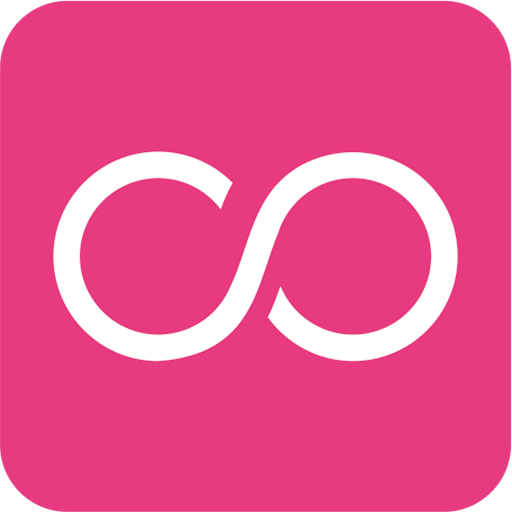Choosing the right HR software is no small feat. With countless platforms promising to streamline everything from payroll to people management, your decision can have long-lasting impacts on your business’s efficiency, compliance, and employee satisfaction. In an age where human resources is as much about data and automation as it is about people, selecting the best software is critical—not just to keep your business running smoothly, but to foster a workplace where your team can truly thrive.
TL;DR (Too Long; Didn’t Read)
Not all HR platforms are created equal, and some may end up costing you more in time, errors, or inefficiencies than they save. In this comprehensive comparison, we break down leading platforms by their features, ease of use, scalability, and value. Whether you’re a startup or a multinational, there’s a software that fits your needs—and some that definitely don’t. Read on to find the perfect match for your team before turning your payroll over to the wrong system.
Why HR Software Selection Matters
Modern HR is data-driven, regulation-bound, and, let’s face it, ridiculously complex. From onboarding to benefits administration, and from compliance tracking to time-off policies, a great HR platform functions as the central nervous system of your organization. Fail to choose wisely, and you’re left dealing with payroll errors, low employee morale, compliance nightmares—and that dreadful feeling of buyer’s remorse.
Fortunately, we’ve done the heavy lifting for you. Let’s explore what makes some HR software solutions stand out, while others fall flat.
Top Factors to Consider When Comparing HR Platforms
- Ease of Use: Can your admin staff and employees navigate without a 100-page manual?
- Payroll Accuracy: How well does the system handle complex tax codes, deductions, and multi-location payments?
- Customizability: Can it bend to fit your unique policies or industry-specific needs?
- Integration: Does it play nicely with your existing software stack—Slack, Zoom, accounting tools?
- Reporting & Analytics: Are you getting valuable insights or just heaps of raw data?
- Support & Community: Is the vendor accessible when things go haywire?
The Ultimate Face-Off: Leading HR Platforms Compared
1. Gusto
Best for small to mid-sized businesses focused on ease-of-use and great support.
- Clean, intuitive interface
- Built-in payroll automation & tax filing
- Customizable benefits management
- Excellent customer service
Potential Drawback: Not ideal for international teams or highly complex organizational structures.
2. BambooHR
Ideal for growing organizations looking to centralize HR data.
- Powerful employee data management
- Exceptional interface for performance reviews and onboarding
- Advanced reporting capabilities
- Optional payroll add-on
Potential Drawback: Payroll isn’t native—it requires additional plugins, which some might find inconvenient.
3. ADP Workforce Now
Enterprise-level solution for those with complex payroll, large teams, and rigorous compliance needs.
- Comprehensive, scalable solution
- Supports benefits administration, talent management, and compliance
- Works across international locations
- Loads of integrations
Potential Drawback: Steeper learning curve, and customer service isn’t always top-notch.
4. Zenefits
A solid pick for startups needing benefits integration with HR basics.
- Easy-to-navigate UI
- Great benefits enrollment features
- Time tracking and PTO included
- Well-suited for remote and hybrid teams
Potential Drawback: Payroll is an extra cost and might not match up to standalone payroll platforms in robustness.
5. Paychex Flex
Geared toward businesses needing a reputable, established payroll provider with HR capabilities.
- Mature payroll processing engine
- Configurable reports and dashboards
- Strong compliance tools
- Live support from dedicated reps
Potential Drawback: UI feels dated and lacks the smoothness of newer competitors.
Additional Contenders
Not every company fits neatly into a box. Here are other notable mentions that might suit niche requirements:
- Rippling: Modular platform that ties HR and IT together—great for tech-forward companies.
- Namely: Mid-size business focused, good for customizing workflows and automating reviews.
- Justworks: Professional Employer Organization (PEO) approach—fantastic for easing compliance headaches.
Hidden Costs to Watch Out For
Don’t let a slick demo fool you. Many HR platforms tack on hidden fees:
- Setup and onboarding charges
- Per-employee user fees
- Charges for tax filing in additional states
- Premium support costs
Read the fine print and ask probing questions about what’s included and what will cost extra. That “affordable” pricing can skyrocket in no time.
Custom vs. Off-the-Shelf: Should You Build Your Own?
Some organizations consider building an in-house HR tool tailored precisely to their needs. While customization sounds attractive, the maintenance, compliance risks, and resource drain can quickly outweigh the benefits. SaaS tools evolve continuously to meet changing laws and tech standards. Unless HR software is your core business, it’s best to trust the specialists.
Crucial Questions Before You Commit
- Is the platform compliant with local, state, and federal laws?
- How secure is employee data, and is it encrypted?
- Will the software scale with our growth?
- How quickly can we implement and train our team?
- Is mobile access available for remote or field employees?
These aren’t just technical questions—they’re essential for long-term success. Dig deep, consult current users, and never rely solely on polished sales pitches.
Final Thoughts: Find the Platform That Deserves Your Payroll
Human capital is one of your biggest investments, and your HR tech stack should reflect that. The best platforms are not just functional; they’re transformational. They reduce workload, enhance transparency, and most importantly, make your employees’ lives easier. Don’t hand over your payroll to just any system—make sure it proves itself worthy first.
Whether you prioritize simplicity, scalability, or industry specializations, take the time to vet your options thoroughly. After all, not all HR platforms deserve your payroll—but the right one can pay dividends far beyond payday.

